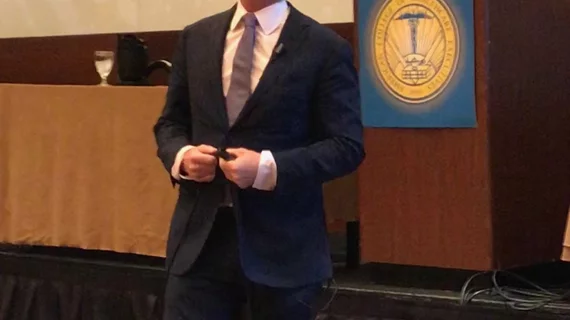Athenahealth’s Jonathan Bush staying put after past domestic violence is revealed
Athenahealth CEO Jonathan Bush issued an apology for “regrettable incidents” after it was reported he had admitted to assaulting his now former wife, but he’ll remain CEO of the health IT company as its under pressure to accept a takeover bid from activist hedge fund manager Paul Singer.
The Daily Mail obtained court documents from 2006 when Bush and his then-wife, Sarah Seldon, had fought over custody of their children. Seldon said there were “numerous physical altercations” including an incident where Bush was “repeatedly slamming his closed fist into her sternum.”
The documents added that Bush acknowledged “that such an incident took place.” In a statement, Bush said he takes “complete responsibility for all these regrettable incidents involving my dear former wife.”
“I have worked very hard since then to demonstrate my remorse, and today, Sarah and I have a strong, co-parenting relationship. I accept responsibility for my conduct and apologize to everyone involved,” Bush said.
In a separate statement, Seldon said “the incident did happen and is part of his and our family history; however, it should not define Jonathan as a person, or our relationship overall.”
According to Bloomberg, Athenahealth became aware of the allegations when contacted by the Daily Mail. It said in a statement that “we are fully committed to a safe and respectful work environment for all our employees.” Bush will continue to serve as CEO, the company said.
The report came as Athenahealth is fighting a takeover attempt by Singer’s firm Elliott Management. After taking a 9 percent stake in the company last year, the hedge fund made an offer of $160 per share—$7 billion overall—to buy it outright.
In its most recent statement, Athenahealth’s board of directors, led by former General Electric CEO Jeff Immelt, argued not all its shareholders support selling the company.
“The board will take into account the views of all of its shareholders as it evaluates the proposal from Elliott Management and considers the appropriate recommendation,” the company said. “The board will take the time necessary to complete its work so that it can recommend only those actions that it determines are in the best interests of all shareholders.”

